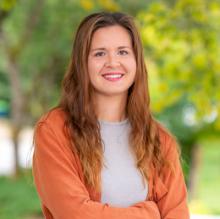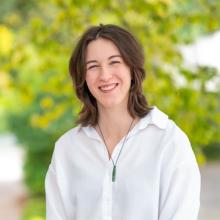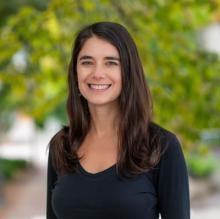The teaching of literature has the potential to divert learners’ attention to the issue of marginalization and to cultivate a greater awareness of the problem. My project for the Public Scholar Initiative is to explore a new literary pedagogy that fosters learners’ awareness of historically, persistently or systematically marginalized people in the real world through the teaching of literature by a marginalized instructor, one with a disability.
Research Description
As is often said, literature is the mirror of society. It is one of the art forms that reflect the dynamics of social power and ideology, and has responded to the socio-structural marginalization of people in society. Therefore, the teaching of literature has the potential to divert learners’ attention to the issue of marginalization and to cultivate a greater awareness of the problem. My project for the Public Scholar Initiative is to explore a new literary pedagogy that fosters learners’ awareness of historically, persistently or systematically marginalized people in the real world through the teaching of literature by a marginalized instructor, one with a disability.
What does being a Public Scholar mean to you?
To me, being a Public Scholar signifies an opportunity to push me to merge disciplinary expertise and issues of the real world, and furthermore to speak and write for audiences both inside and outside of university system to make the world a better place. Public Scholars engage with the public good through rigorous scholarly work while being beyond academia and the disciplinary boundaries.
In what ways do you think the PhD experience can be re-imagined with the Public Scholars Initiative?
The Public Scholars Initiative offers me ways to share my work more deeply with more people on/in campus, academia, and the public sphere. Specifically, as one of the greatest features of the Public Scholar Initiative is its rich space of networking and support, it will allow me to develop my work towards a more active engagement with various parts of fabric of society by interacting with like-minded colleagues across disciplines and sectors.
How do you envision connecting your PhD work with broader career possibilities?
I am interested in seeking a possible post-PhD career bridging academia and the outside world. Specifically, I will seek to identify so-called “alternative academic” career paths in postsecondary schools, which provide advising, training, and resources for teaching and learning communities. However, these positions tend to focus on offering general, purely skills-focused training, and typically pay little attention to the discipline-based scholarship that is applicable in other environments. As a response to this pre-existing climate, I would like to develop possible post-PhD careers that move back and forth between university-level inquiry on the one hand and active and creative public lives inside or outside the academy on the other.
How does your research engage with the larger community and social partners?
My PSI project is conducted in the context of an undergraduate course at UBC in collaboration with a University-affiliated partner. My work can engage with the larger communities in two ways; firstly by fostering students’ civic capacity and responsibility towards marginalized people in society through literary education, and secondly by providing students with the practical opportunity to learn how to work with disabled people by being exposed to my teaching with a disability. Such experiences could encourage students to further commit to promoting equity, diversity and inclusion for marginalized people, both on campus and beyond.
Why did you decide to pursue a graduate degree?
I think, during my undergrad, I took some eye-opening courses that stimulated my interest in social and cultural issues. Then, pursuing a graduate degree appeared to me as an option in my life… It's been so long that I can't remember!
Why did you choose to come to British Columbia and study at UBC?
One of the reasons I decided to study at UBC is the research environment and the people I can work with. I am very glad and honored to purse my PhD degree with the people whose work impressed me and made me decide to come here. Of course, that UBC/the department offered me a sufficient scholarship to live and study here is another reason.
Being a Public Scholar signifies an opportunity to push me to merge disciplinary expertise and issues of the real world, and furthermore to speak and write for audiences both inside and outside of university system to make the world a better place. Public Scholars engage with the public good through rigorous scholarly work while being beyond academia and the disciplinary boundaries.




